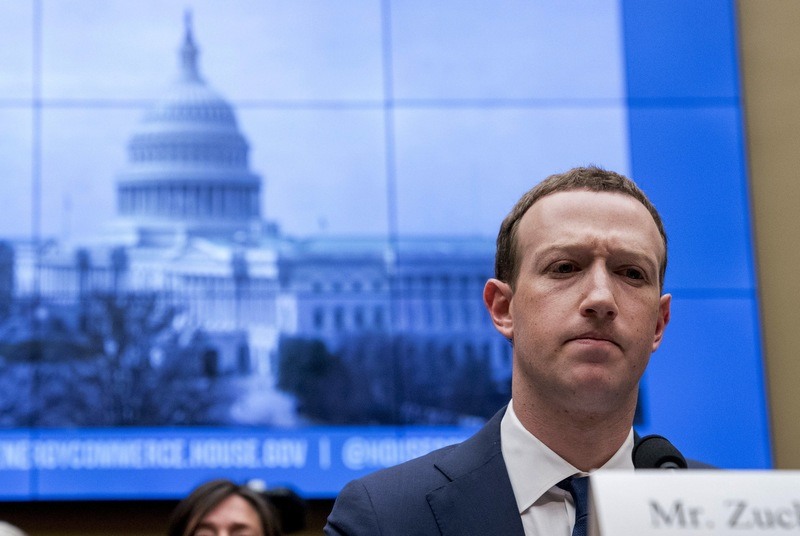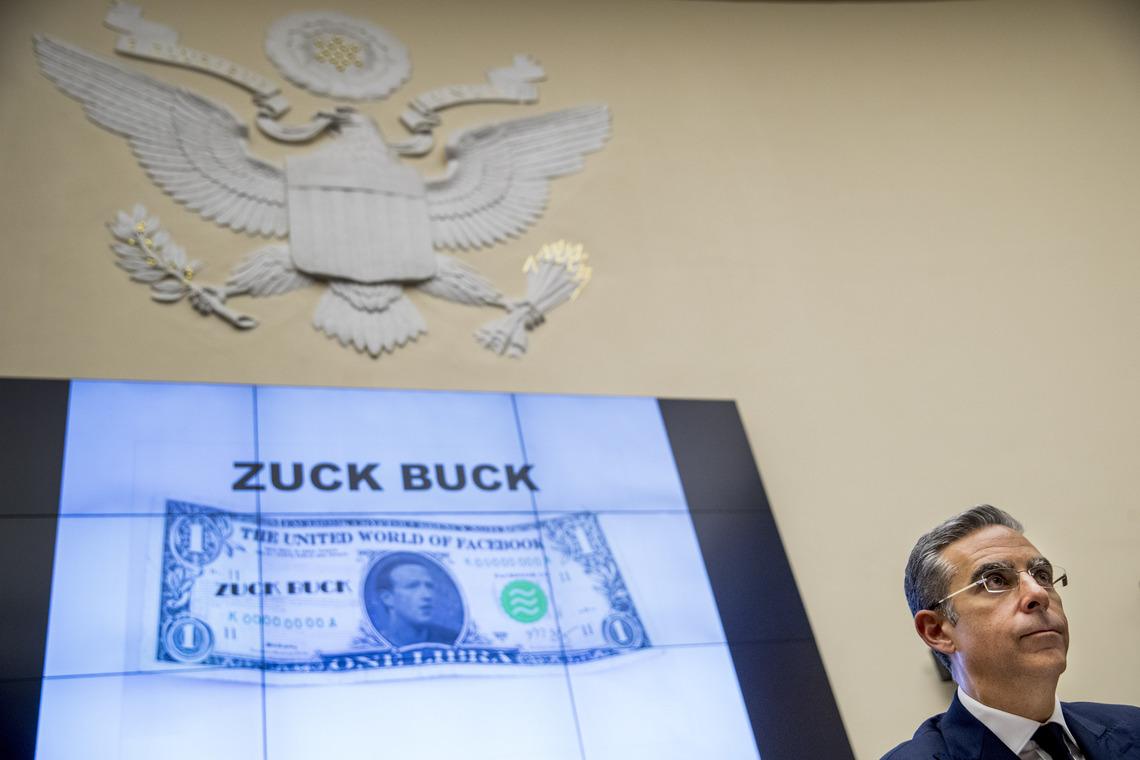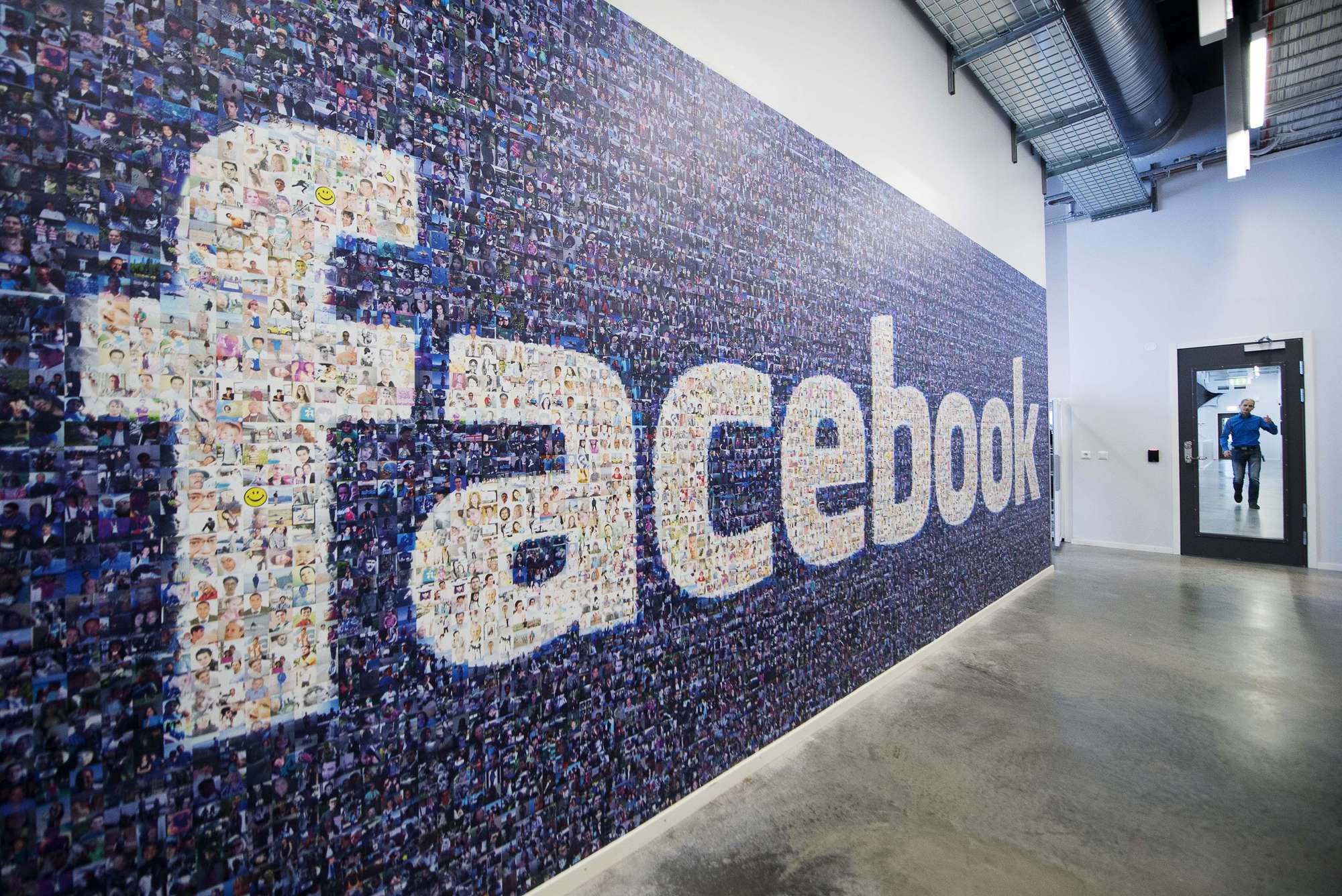Facebook Hawks Libra as Western Union 2.0 Amid Capitol Hill Slugfest

| Source: AP Photo / Andrew Harnik (i), REUTERS / Joshua Roberts (ii). Image Edited by CCN.com.
House Financial Services Committee Chairwoman Maxine Waters has been on a crusade against Facebook’s entry into cryptocurrency via the Libra project.
Her rampage continued on Wednesday during a second day of congressional hearings devoted to Libra. You can watch the hearing below:
“Keep Big Tech Out of Finance Act” Looms Large as House Scrutinizes Libra
Waters and other congressional Democrats are currently working on a bill to keep big tech out of finance.
In her opening remarks at a hearing entitled “Examining Facebook’s Proposed Cryptocurrency and Its Impact on Consumers, Investors, and the American Financial System” Waters said, in part:
“I have serious concerns with Facebook’s plans to create a digital currency and digital wallet. […] Facebook is apparently trying to create a new, global financial system that is intended to rival the US dollar.”
“This venture is slated to be based in Switzerland, which has a history as a monetary haven for criminals and shady corporations. Facebook’s plans raise serious privacy, trading, national security and monetary policy concerns, not only for Facebook’s over 2 billion users who will have immediate access to these products, but also for consumers, investors, and the global economy.”
The hearing is a follow-up to yesterday’s Senate inquisition, during which several influential legislators such as Senator Pat Toomey expressed support for Facebook and blockchain technology in general. Others savaged the social media giant.
Waters, like her Senatorial colleagues yesterday, pointed out that Facebook has a terrible record on privacy and data preservation. The company is currently in the midst of paying historic fines for poorly storing passwords and turning over data to politically motivated firms, among other things.
Congress Puts Facebook on Defense

In the minds of some lawmakers, Cambridge Analytica remains fresh in their memory.
Moreover, the global financial crisis that marked the final months of the George W. Bush administration and the early days of Barack Obama’s presidency is remarkably fresh in the memory of some Democrats. They seem to think that Facebook’s efforts to create a global financial product might contribute to similar problems down the line.
To date, Facebook’s cryptocurrency project has coincided with a stalled bull market run for the greater crypto market. Lawmakers have asked Facebook to halt its plans and, as stated before, they are drafting legislation to make it illegal for Facebook or similar companies (paging Kin) to launch their own currency.
The bill provides a period of reprieve to companies, giving them an opportunity to wind down their rogue currency operations.
Bitcoin has existed for ten years, but Facebook’s recent actions have stirred more commotion than anything Bitcoin has ever done.
Some lawmakers have even flirted with the idea of establishing a new regulatory commission specifically to handle the convergence of social and financial data, as well as blockchain products.
Congressman: Satoshi Nakamoto’s World Vision Is “Unstoppable”

Representative Patrick McHenry from North Carolina got down to business, saying the meeting was intended to “go beyond the hype.” He also said Washington should not be “the place where innovation goes to die.”
McHenry called for moderation in reactions to Facebook’s plans. Tampering his enthusiasm with the reality that “it’s Facebook,” he said:
“We can choose to conduct thoughtful governmental oversight. That’s my hope for this day. […] Whether Facebook is involved or not, change is here. Digital currencies exist. Blockchain technology is real. And Facebook’s entry in this new world is just confirmation, albeit at scale. The world that Satoshi Nakamoto […] envisioned, and others are building, is an unstoppable force.”
Speaking indirectly of Maxine Waters, McHenry spoke of politicians who darkly demand that anyone “ask permission” just to innovate. He spoke of another worldview that promotes growth and technology. Completing his statement by saying that the Republican side would like to hear Facebook out, he stressed that the company has friends if it approaches this issue correctly.
Marcus Describes Libra as a Sort of Western Union 2.0

Republicans seem to be embracing the idea that a new regulatory body may be necessary.
Facebook Libra chief David Marcus opened his statements by thoroughly introducing himself and his qualifications, such as having once been president of PayPal.
He told representatives that we are “only at the beginning of this journey” and stressed that Facebook “strongly” agrees with regulatory concerns so far expressed in various conferences and hearings.
Marcus laid out the remittance case for Facebook, citing high fees and difficulty sending money peer-to-peer across borders. “That’s what Libra is about,” he told them. Facebook and partners intend to create a better Western Union, it seems.
The former Coinbase board member repeated some of his statements from yesterday almost verbatim, specifically when it comes to issues like compliance.
No One Trusts Facebook
While Facebook has committed to never share financial data without user permission, the company has also repeatedly stressed that it may “exceed” regulatory requirements. Does this mean that, in terms of privacy from government intrusion, Facebook’s Libra will be easier for law enforcement to work with?
Waters began her grilling after Marcus’ opening statements.
“You’ve said that we don’t need to trust Facebook because it will only be one of 100 members in the Libra association who will manage it. But that’s not entirely true is it? The project was Facebook’s idea […] As I understand it, no member of the association has paid anything towards the project. So my question is: why should we trust Facebook to do these activities?”
Marcus called trust “essential” and said Facebook is “owning” their mistakes.
“We have also given, donated if you will, the technology because it’s now open source. […] As a result, we are not controlling the codebase, and by the time we launch, we will be one of 100 members with no special privilege. As far as the wallet is concerned, I believe that the idea here, often, is that one day we will arrive and two billion people will be on. This is not the case.”
Marcus then explained that users will have to go through a separate process to sign up for Libra, which is how the company will comply with regulators.
Waters retorted that it “isn’t clear” that US authorities would have authority to regulate Facebook. She also pointed out that Swiss regulators have said they have heard nothing from Facebook.
“If the regulators lack the authority to adequately oversee you, how can you work with them to resolve concerns? […] Will you stop kind of dancing around this question and commit here, in this committee, before the duly elected representatives of the American people, to a moratorium until Congress enacts an appropriate legal framework to ensure that Libra and Calibra do what you claim it is intended to do, which is to serve the public good?”
Waters also pointed out that everyone supports innovation, and stressed that it’s not a partisan issue. She may be correct in this assertion, with people on both sides of the aisle taking various positions on crypto recently.
Marcus approached Waters’ remarks cautiously, saying he agrees with the lawmaker and stressing that Facebook is taking a slow approach to “ensure” that Facebook will get this right.
Well, What’s a Libra?

Patrick McHenry then took his time to ask some questions, establishing that he has some familiarity with crypto. He asked Marcus, directly, what a Libra is.
Marcus said it’s a reserve-backed digital currency.
McHenry wanted to know if it was a security, commodity, or ETF, but Marcus pointed out that this answer remains unclear.
McHenry said if it doesn’t fall into any existing category, how does Facebook comply with regulations?
Marcus was unable to provide a good answer to the question, saying that the Libra Association was still working on it.
The North Carolina representative then asked about the nature of Libra’s eventual transition to a “fully decentralized digital currency.”
Marcus said that even with a more decentralized system, the Libra Association would still have authority to establish the rules that participants play by.
Marcus Repeatedly Fails to Satisfy Lawmakers
Asked if Facebook is more like Western Union or PayPal, Marcus said it depends on what you mean. In some ways it’s more like PayPal, but in others it’s more like Western Union. Marcus also agreed that Libra would be competing with AliPay, WePay, PayPal, and Venmo.
New York Representative Carolyn Maloney asked for clarification on whether or not Facebook will halt Libra. Marcus’ answer was received as a no. Maloney asked if Marcus would commit to doing a small pilot program first, limited to no more than 1 million users, overseen by regulators. Marcus did not immediately commit to any such thing.
“You’ve breached the trust of users over and over again. […] I would like to ask you again, will you commit to walking before you run? Because if you go ahead and launch Libra without doing a pilot program first, there are too many risks.”
“The Libra reserve could be managing too much money, which could make it systemic. Too much money could be pulled out of banks in order to buy Libra. […] So the risks are very great. […] I don’t think you should launch Libra at all, because the creation of a new currency is a core government function and should be left to democratically accountable institutions that are accountable to the American people.”
Marcus did not commit to doing a “small pilot program” first. He said his company would continue to work with the US and the G7 working group Facebook has already engaged.
Maloney said she thinks Congress should consider stopping the project from moving forward since Facebook will not commit to a smaller pre-trial program.
The New York congresswoman then expressed concern about whether or not Facebook can comply with, for example, Treasury demands to blacklist certain persons.
Facebook: Top Financial Cop?

Marcus told the representative that other networks will facilitate illegal transactions regardless of what Libra does. She asked if that was a matter of a equivalence – since they do it, Facebook can? Marcus emphatically said no.
Yet another Democrat asked whether Marcus would halt the launch of Libra at the behest of the government, “yes or no.”
Finally, Marcus said “absolutely.” He pointed out that Facebook is launching in a “spirit” of co-operation.
Maxine Waters retook the floor and asked if Marcus would commit to the moratorium. This marked the fourth or fifth time he had been asked this. He neglected to assent.
Arkansas’ French Hill took the floor then. He asked about fees that Calibra would collect for movement of money between parties on the platform.
Marcus said it would be free. Hill then inquired whether there would be fees between businesses, for example, and Marcus said there’d be small merchant fees that would be “very competitive.”
Hill also inquired how Facebook would deal with certain countries where strict currency controls are in place.
Marcus previously told the US Senate that the primary drive from Facebook’s perspective is the millions of small businesses who are not online but use Facebook. Bringing these businesses online would create new revenue for Facebook, in both advertising and merchant fees.
Unlike yesterday’s Senate hearing, Marcus found few friends in the House of Representatives. He was continually put on the defensive.
The Proof Is in the Calibra
Missouri congressman Blaine Luetkemeyer voiced concerns about the intent of Facebook to fix a “broken” system. Marcus was forced to double-down on his assertion that the current financial system is “broken.”
Interestingly, Marcus said the Libra reserve would always be “proportional” to the number of tokens in circulation. This is not the same as a direct commitment to “one for one” backing.
Other representatives like Georgia’s David Scott expressed concerns about the potential for the system to be used in money laundering. The fact that cash remains king in money laundering was not discussed.
Once again, Marcus spoke to the company’s plans for know-your-customer compliance actions.
Bill Huizenga from Michigan asked if it was true that Facebook had never spoken to Swiss regulators. Marcus said this was untrue, that the company had been in continuous contact.
Congressman Sean Duffy said he was concerned that Facebook would now have the power to blacklist people out of the economy. Is that a power that Facebook should possess? Or would people banned from Facebook – Milo Yiannopoulos, for instance – be able to use Libra?
Marcus said that he personally disagrees with any policy which would enable Facebook to tell people what to do with their money, or who can use it.
Duffy said he had “great pause and concern” that the model of Libra would be similar to the model of Facebook, hinting at various conservatives who’ve been banned from the social network.
As the hearing dragged on, Marcus found himself answering increasing questions about the mechanics and protections of the network.
Demonstrating a difficulty to answer “yes or no” questions, the embattled executive may or may not come out of this hearing with a more difficult task to bring Libra to market than when his Capitol Hill adventure began.